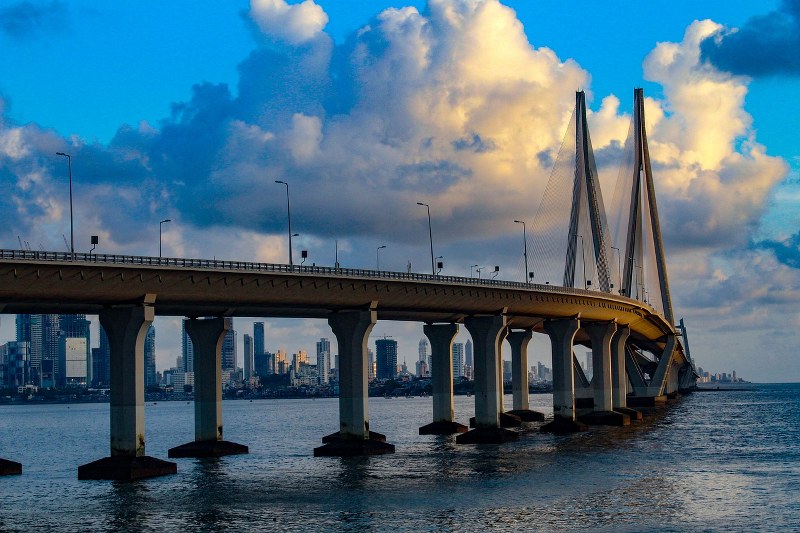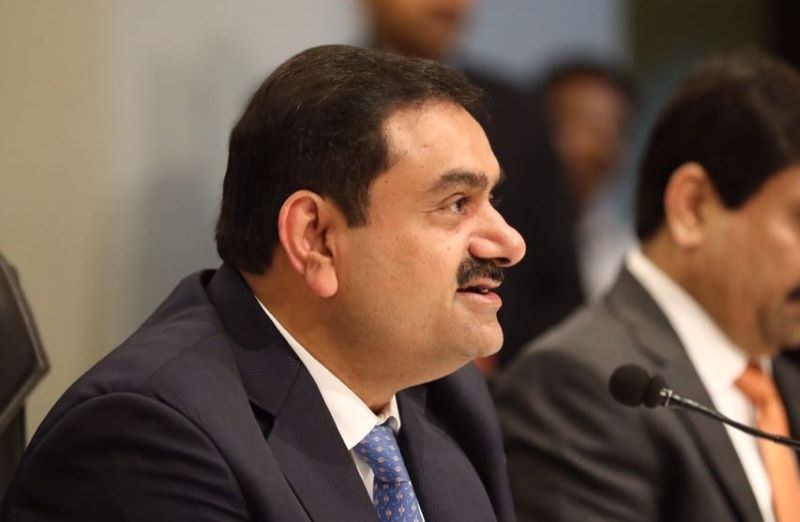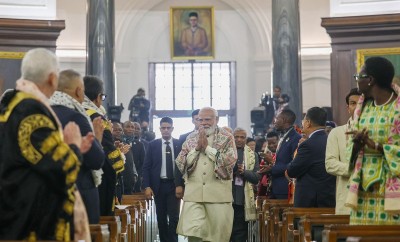
Targeted attacks that a growing economy like India faces
India, teetering on the cusp of an economic transformation, is redefining its economic identity and elevating itself to being one of the world’s leading economic powers. India’s economic journey, from being a largely agrarian economy at the time of independence less than eighty years ago, to becoming a global powerhouse with a burgeoning middle class, a vibrant startup ecosystem and a rapidly growing industrial sector has been nothing short of remarkable.
According to the World Economic Outlook report by IMF, India continues to be one of the fastest growing economies in the world since the last decade, with nominal GDP in 2024 estimated at USD 3.95 trillion, and with GDP growth in 2024 estimated at 7%.
This number stands apart from the growth rates estimated for the US and EU, standing at around 2.5% and 2%, respectively. Furthermore, the same report estimates China to be growing at under 5% in the same year. The stark difference in the growth rates has not been unobserved but continues to elude major global media edification.
As India emerges as a significant economic power, it faces increasing challenges supported by inimical interests, not only in the neighborhood but elsewhere too, with both, state and non-state actors, employing a combination of tactics to achieve their objectives.
While the country has shown remarkable resilience and adaptability against these attempts, there are forces at play that seem intent on derailing its upward trajectory.
The unwavering intent of these forces has led to escalations and diversification in the areas and modes of attacks. As a result, India today is confronted with asymmetric threats, not only limited to military or cyber aggression, but also actions that combine misinformation, coloured research, indoctrination, false narratives and further on, all aimed at undermining its foundational stability and enviable growth.
These forces, often masquerading as guardians of transparency and accountability, continue to target key players in India's economic landscape—companies that are not just businesses, but vital cogs in the machinery driving India's growth.
A few of these companies or corporate groups play the dual role of being vital cogs in the Indian infrastructure space and that of the engine that drives development, foreign investment and unprecedented growth in these sectors.
Internationally released reports which seek to discredit these industrial groups that are driving India's economic growth, are intended to have far-reaching and detrimental consequences on investor confidence, economic stability, and overall national development. By selectively building a false narrative against these companies and painting them in a negative light, such reports are designed to undermine trust in the business environment and deter much-needed investment for growth.
In the late half of January 2023, the Hindenburg Research, an investment firm in the US, published a report alleging inconsistencies in the financial dealings of the Adani Group, one of India’s largest conglomerates with deep ties to India’s infrastructure, energy, and agriculture story.
 The Adani Group has dismissed the allegations in a U.S. Department of Justice (DoJ) indictment as baseless and vowed to take legal action. Photo courtesy: Gautam Adani X page
The Adani Group has dismissed the allegations in a U.S. Department of Justice (DoJ) indictment as baseless and vowed to take legal action. Photo courtesy: Gautam Adani X page
The content of the report was designed to claim that the Adani Group was involved in stock manipulation and fraudulent practices, with a clear and explicitly stated intention of causing a massive plunge in the Adani Group’s market capital, wiping out billions of dollars in shareholder wealth across the nation.
This action was perceived as a strike against India’s growth trajectory because the Adani Group is synonymous with the country’s infrastructure development and economic upliftment.
The timing and specificity of the report led many to believe that it was designed to create turbulence within the Indian economy. By targeting a flagship group that plays a paramount role in infrastructure — a critical cornerstone of India’s growth story — the intention seemed clear: to stymie economic progress, create distrust among domestic and international investors, and indirectly foster a narrative of instability in the Indian market.
While scrutiny is an essential part of any democratic and capitalistic society, as is ensuring transparency and accountability, there is a fine line between scrutiny and sabotage. The modus operandi in this case is enough to conclude the actual intent to be sabotage of the Indian system and not scrutiny for public good.
However, despite the significant fallout from the Hindenburg report, the anticipated result of long-term damage to the Adani Group and, by extension, India’s growth did not manifest as expected. The nuanced resilience of India's economy, along with strong governmental support, an indomitable judiciary and thorough regulatory scrutiny, allowed the Adani Group to regain some of its value and credibility in the market.
The Indian government’s swift action, including possible investigations and regulatory clarifications, indicated that the system was robust enough to sustain and befittingly neutralize such assaults.
There is a need to view these attacks within the broader context of global economic dynamics. As India rises, it inevitably challenges the established economic order, which has been dominated by Western powers for centuries.
The rise of Indian companies, especially in sectors like infrastructure, energy and technology, and not just within national borders but beyond, represents a shift in this balance of power. It is not far-fetched to assume that these attacks could be a part of a strategy to contain this rise, ensuring that the established powers maintain their economic hegemony over the world.
Misinformation campaigns are a key strategic tool in these efforts to spread false or misleading information with the intention of influencing public opinion, sowing discord, or achieving specific political objectives. In democracies these campaigns are particularly insidious as they exploit the open nature of democratic societies to spread disinformation through various channels, including social media, traditional media, and civil society organizations. Such campaigns pose significant challenges to democratic countries, as they erode trust in institutions, polarize societies, and undermine the democratic process itself.
In India, where diversity is both a strength and a vulnerability, misinformation campaigns can stoke social unrest. It is crucial for India's information ecosystem to counter these narratives with well-informed and deep-researched journalism and grassroots communication strategies that present a more balanced and nuanced view of the country’s realities.
As India ascends as a global economic power, understanding and addressing these challenges is crucial for sustaining its growth and ensuring national security in an increasingly adversarial environment. It is important for India to strengthen its economic defense – safeguarding the interests of its industry and infrastructure sector while also building a more resilient economic ecosystem that can withstand such attacks. One way to achieve this would be by enhancing regulatory frameworks that ensure transparency and good governance, while also protecting companies from unfounded allegations.
Support Our Journalism
We cannot do without you.. your contribution supports unbiased journalism
IBNS is not driven by any ism- not wokeism, not racism, not skewed secularism, not hyper right-wing or left liberal ideals, nor by any hardline religious beliefs or hyper nationalism. We want to serve you good old objective news, as they are. We do not judge or preach. We let people decide for themselves. We only try to present factual and well-sourced news.







